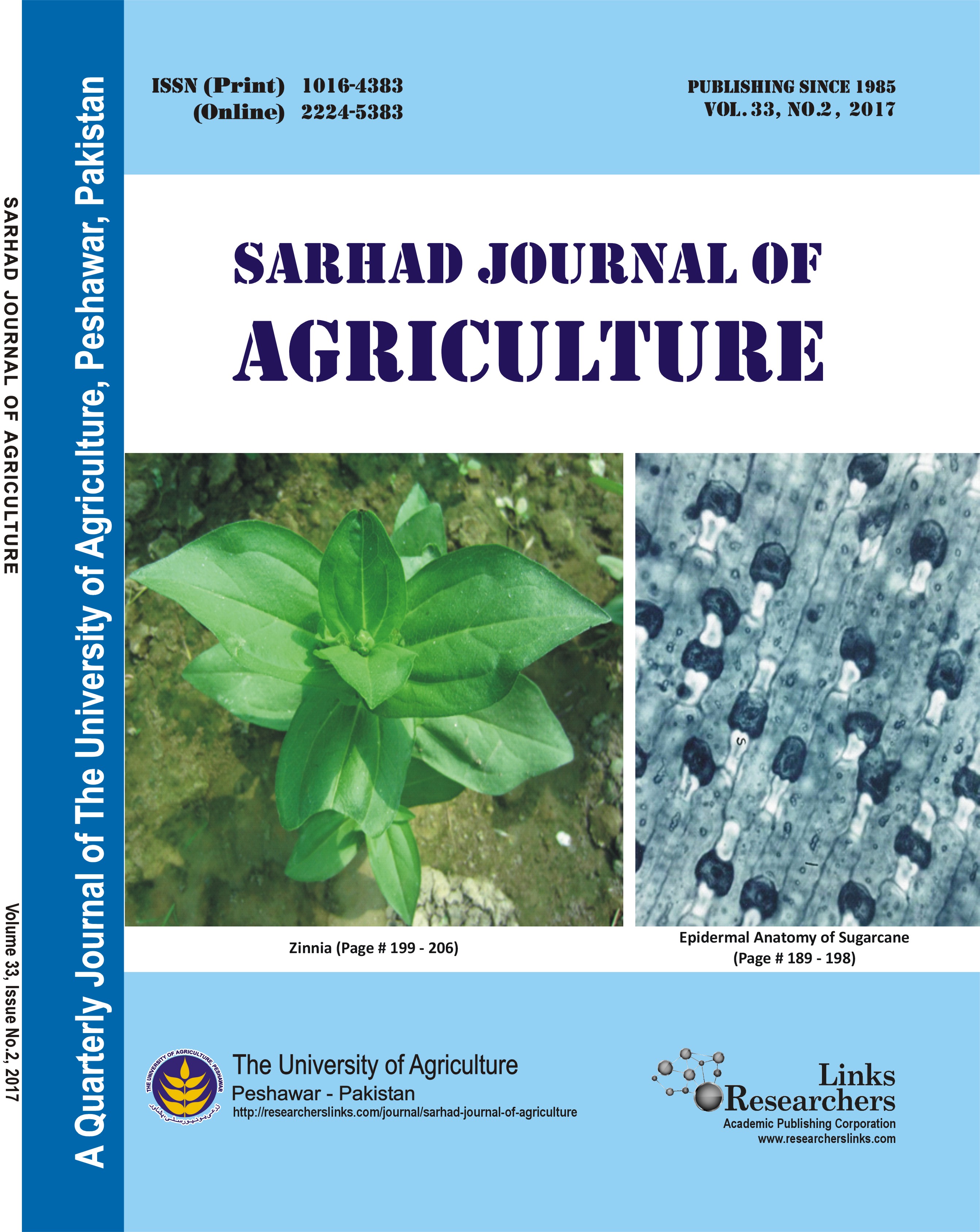Correlates of Poverty in Azad Jammu and Kashmir: A Logit Analysis
Correlates of Poverty in Azad Jammu and Kashmir: A Logit Analysis
Gulnaz Hameed1, Abdul Saboor1, Khuram Nawaz Sadozai2*, Ghaffar Ali2, Dawood Jan2 and Mansoor Rasheed3
ABSTRACT
Azad Jammu and Kashmir has an agrarian economy which is confronted with substantial challenges of poverty, health facilities and education. To cope-up with deprivations through various facet, series of rural/community development programs have been launched for long times. The research gap needs to be addressed is an empirical analysis of contribution of such initiatives in the welfare of masses through poverty reduction in the area. This research endeavor is designed to figure out the impact of one of such projects named as Azad Jammu and Kashmir Community Development (AJKCDP) through poverty estimation and exploring the correlates of poverty in AJ and K. Multistage sampling technique was used to draw a sample of 540 respondents from the universe comprising both registered and nonregistered members of AJKCDP. Primary data were collected through interview schedule. Foster Greer and Thorbecke measure was used to calculate incidence of poverty which is then used to model the probability expressions with the help of Logit to investigate the correlates of poverty in the research area. Poverty was found at below for registered members and investigations showed that education, area under cultivation, possession of assets, status of employment, ownership of livestock and jobs of females increased the likelihood of decrease in poverty. Therefore, successful components of this program should be replicated with great care and focus should be given on education because any intervention in community cannot be helpful in reducing poverty unless the respondents are educated. The study also revealed empirically that participation of women in different economic activities plays an important role in poverty reduction so the policies which are gender friendly can be highly advantageous particularly in the distant regions. Local communities may be involved and private sector should also be invited by foundation of mutual social conscientiousness to improve education related infrastructure.
To share on other social networks, click on any share button. What are these?







